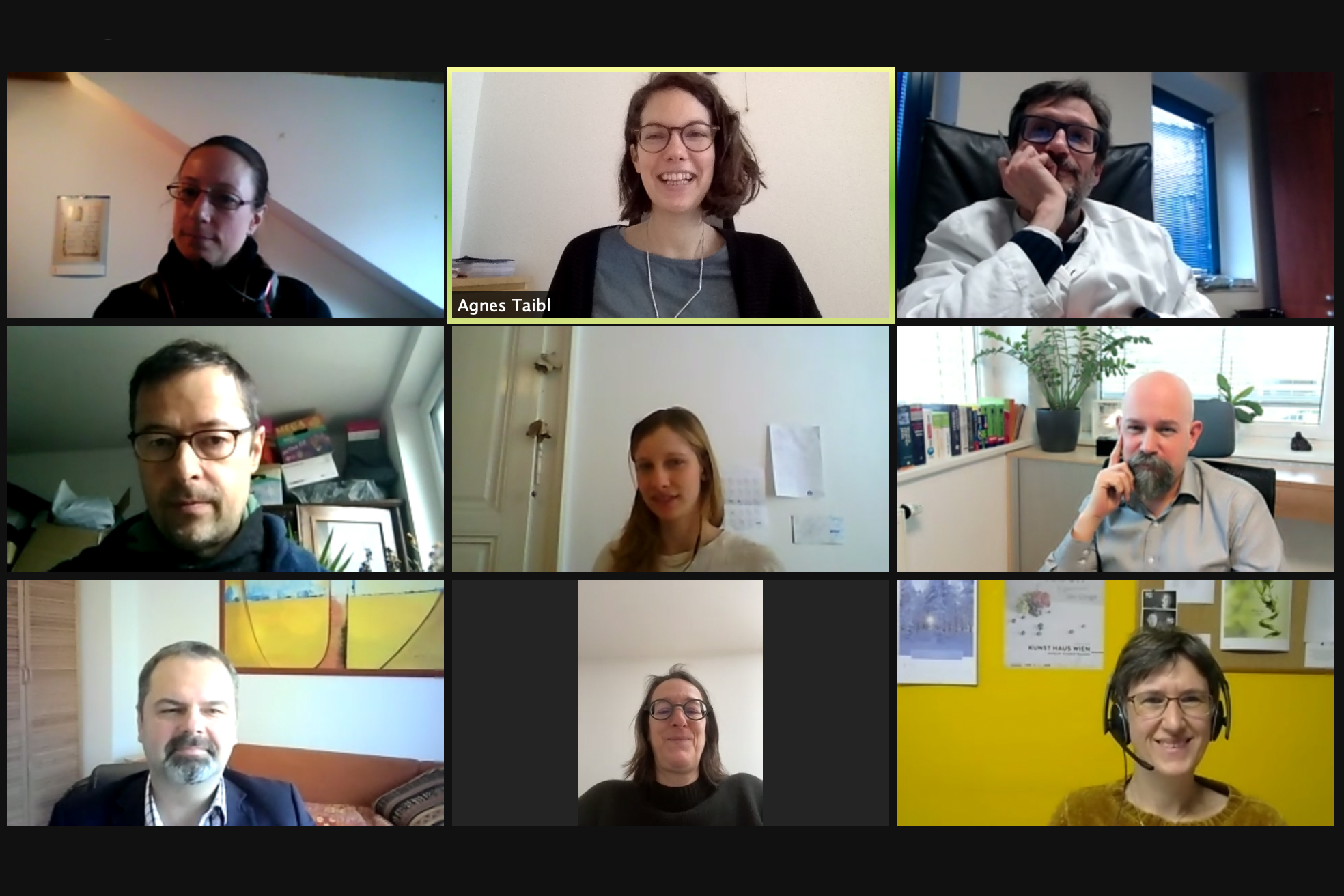Final Project Meeting RiMe #2: RiVi – Rights of Victims of Survived Bodily Harm: Improved Access to Clinical Forensic Examinations
Within the scope of the EU-funded RiVi project “Rights of Victims of Survived Bodily Harm: Improved Access to Clinical Forensic Examinations”, the final project meeting with all project partners took place on 22 January 2021. Since February 2019, the partners worked on strengthening the rights of victims of violence according to the EU Victims’ Rights Directive and sensitising relevant stakeholders for clinical forensic examinations. The RiMe # 2 meeting aimed at reflecting the implemented activities during the project duration as well as discussing acquired knowledge in the course of the project. In addition, the team looked back on the cooperation and considered perspectives for the future.
At first, Agnes Taibl, Senior Project Manager and Researcher at the Ludwig Boltzmann Institute of Fundamental and Human Rights gave an overview on the status of achievement of the project deliverables and the changes that were necessary due to the COVID-19 pandemic. Afterwards, Sabine Mandl, Senior Researcher at the Ludwig Boltzmann Institute of Fundamental and Human Rights and Michal Malacka, Professor at Faculty of Law at Palacký University Olomouc, presented the key findings of their articles to be published. Sabine concentrated on the term “victims of crime” and presented the main results of the comparison between the Istanbul Convention and the Victim’s Rights Directive. Michal identified key findings of the summary of victims’ rights connected to the access to clinical forensic examinations. Thereafter, Andrea Berzlanovich, external counsellor of the Center of Forensic Science at Medical University of Vienna, presented the evaluation results based on the feedback of participants and interviewees received throughout the duration of the project. The evaluation results clearly stated participants’ satisfaction with the content of trainings, jour fixe meetings and other events, and the effect that RiVi activities had on their understanding of and competences in clinical forensic examinations and related topics. Inspired by the positive results, the team reflected on the high value and impact of the project on relevant stakeholders, and discussed possible follow-up activities that could be envisaged.
In a session focusing on the cooperation within the team, all partners appreciated the interdisciplinary composition of the project team as well as the fruitful exchange and good communication, despite of Covid-19 as a challenge for the project implementation. Regarding future cooperation and possible follow-up activities, the team identified various ideas, such as a deeper analysis of the supporting system as well as existing gaps in the implementation of the EU Victims’ Rights Directive. They considered examining differences between female and male victims’ support structures and intensifying interdisciplinary cooperation among forensic medical and clinical societies. Furthermore, the team recommends focussing on the structural amendments to avoid secondary victimization as well as on further target groups such as children and elderly in retirement residential homes.
The agenda of the project meeting is accessible in the download section of this article.
